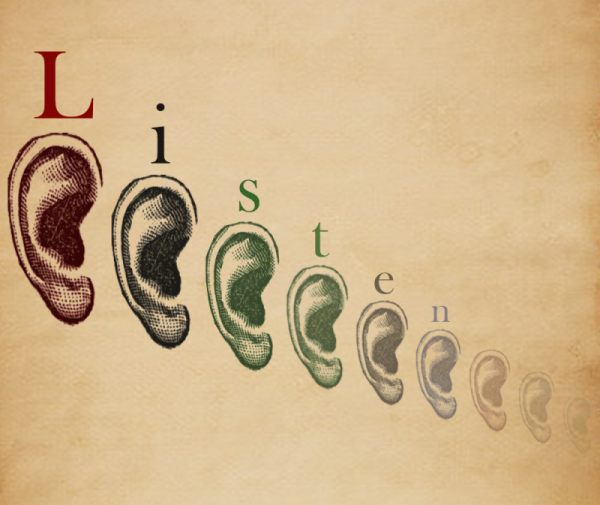We hope you enjoyed our Language Learning experience posts over the past few weeks.
In the posts that follow, we are going to look at different techniques to develop your skills in your chosen language in four different areas: listening, speaking, reading and writing.
This posts gives you a few tips on how to develop your listening comprehension skills. Like any other skill, listening can be developed with practice. Good listening skills also help you improve your speaking skills.
Remember that there are only a few situations when you need to listen hard to and understand every word – like an announcement telling you when your flight is at the airport. Most of the time it’s not necessary to understand everything, so don’t worry if you don’t catch every word.
Another thing to remember is that if you are speaking to someone, you can ask them to repeat something. This is a normal part of speech so will not disrupt the conversation. The important thing to do when listening is…relax (but be active)!
Learn Listening By…Listening
A few posts ago, we recommended you immerse yourself in the language you are learning in order to become more familiar with it. So the first thing to do to develop your listening skills is to listen to your chosen language as much as you possibly can. You will be surprised how much you pick up.
You can chose to have the sound on in the background while you are doing something else so as to get used to how the language sounds or you can take part in active listening. The two tasks have different goals.
You can find material to help you develop your listening skills on the radio, on TV or in audio books.
Preparing for Listening
In most conversations you have or situations you experience, you usually know more or less what is going to be talked about, so you know what kinds of words are going to be used. Approach listening exercises by preparing for what you are about to hear: make decisions about what to listen for and what to focus attention on while listening.
Ambient Listening
Listen to the radio thorough your headphones while you are walking or listen to music in your chosen language while you are cooking, doing the housework or relaxing. This will mean you get used to hearing the sounds of the language. It also means that you will not feel stressed when it comes to active listening because you will already be familiar with the sounds of the language.
It is important that this is not your only listening activity. The trick is to combine different types of listening so that you make progress.
Active Listening
There are a number of tasks you can do to practice listening actively – that means listening with a purpose, focusing your attention and listening out for specific details. Active listening requires you to take action based on what you have heard.
- Listen for one element in speech patterns rather than listening for meaning: listen for sounds, for tones, for melody, for stress and so on. You can then practise applying these patterns to your speaking.
- Pick out as many words as you can without worrying about understanding everything. The more you do this, the more words you will understand each time.
- Decide on a topic and try to pick out key words to do with that topic. Write them down so you have a list of topic-specific vocabulary to refer to.
- Try to transcribe what you hear. You can pause the audio and go back if you miss something or need to listen to it again. Many online radio programmes have transcripts that you can check yours against.
- Read the transcript whilst listening to a radio programme. That way you will be able to hear exactly what the speakers are saying.
- Listen to music and read the lyrics. There are lots of music videos online with lyrics that you can read along to.
- Listen to the same segment again and again to see how much more you understand each time.
Resources
You can find a lot of listening resources on the internet. If you search for the name of the language you are learning + ‘radio’, you will more than likely be given a list of radio stations you can choose from. Some of the online radio stations have tailored listening exercises for language learners, such as Radio France Internationale (scroll down to ‘Apprendre le français’ or see the Journal en français facile (News Report in Easy French) or Deutsche Welle.
A Word on Vocabulary
In order to develop your listening skills, it is also important that you keep up your on-paper study of vocabulary and grammar too. This will mean you will recognise more of the words in the audio you are listening to.
And, most importantly, have fun!
Written by Suzannah Young

